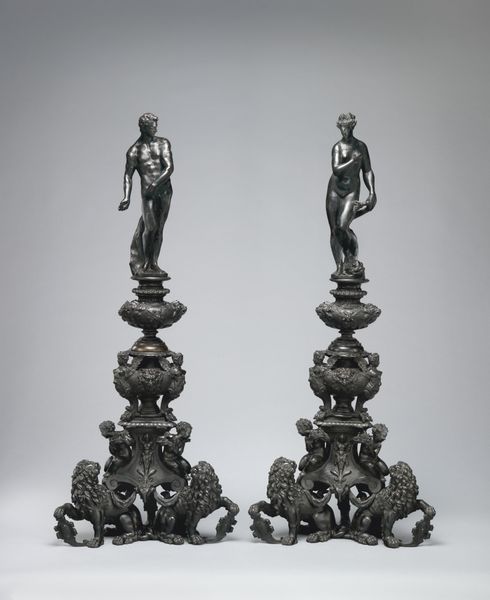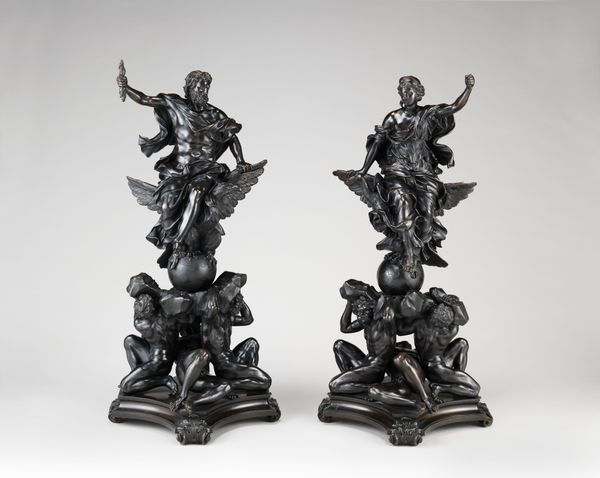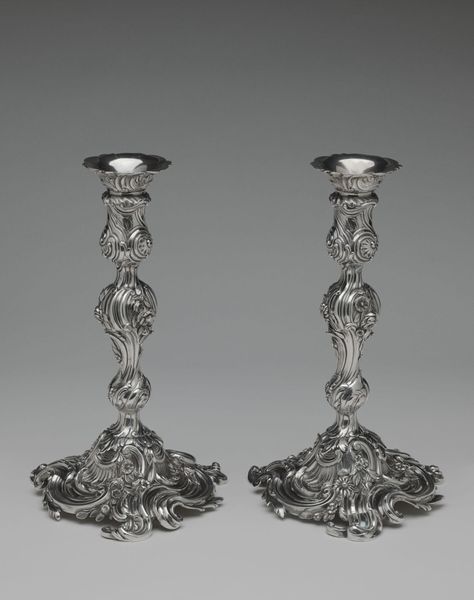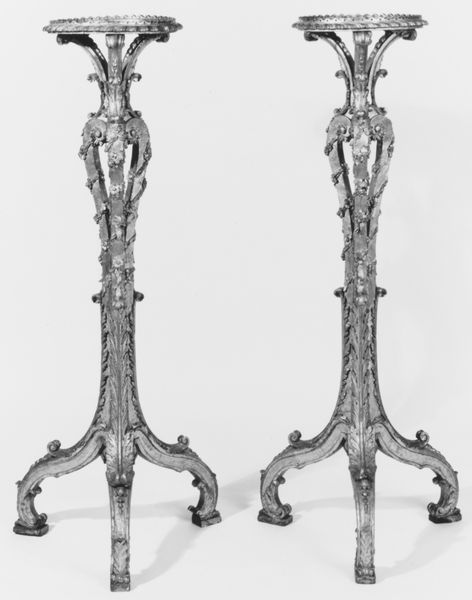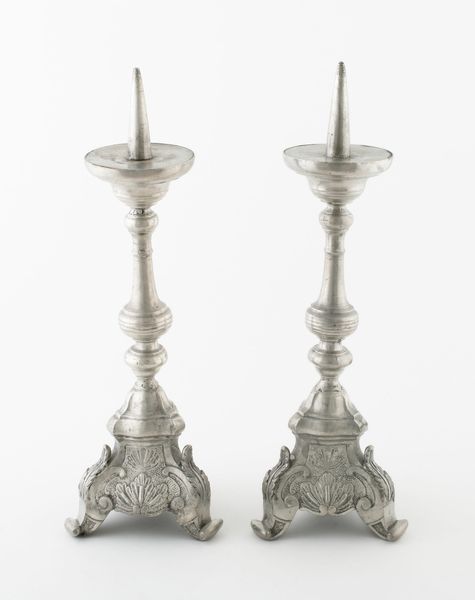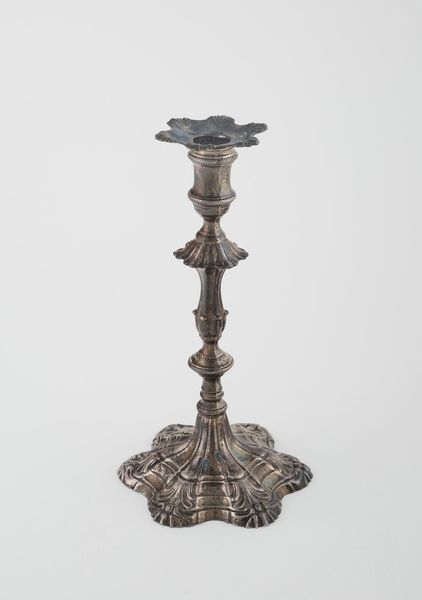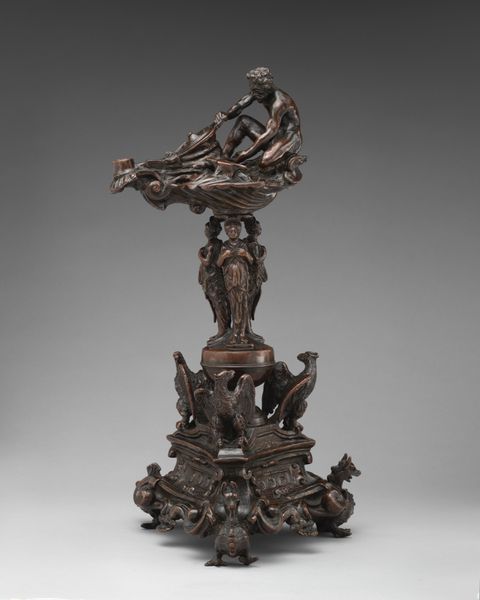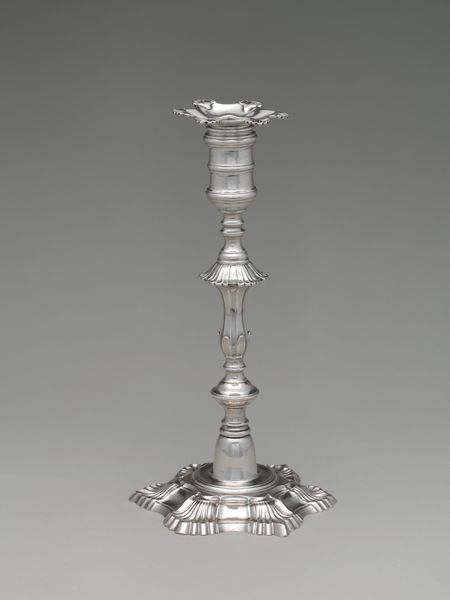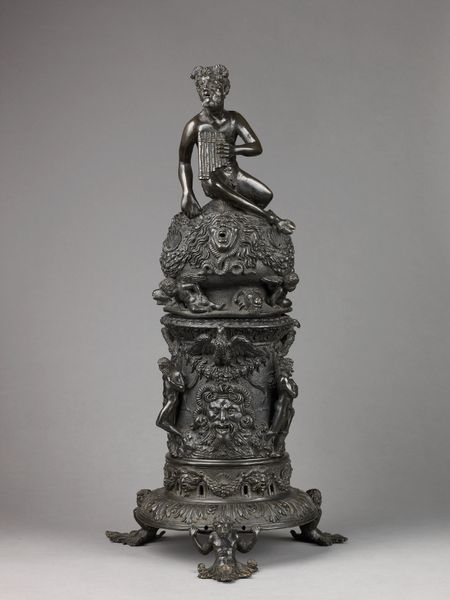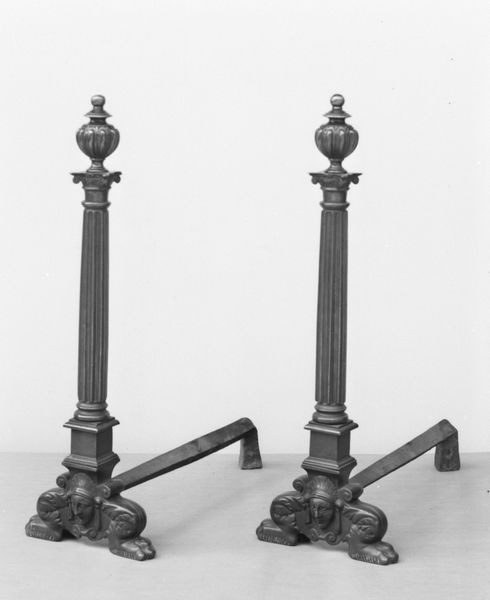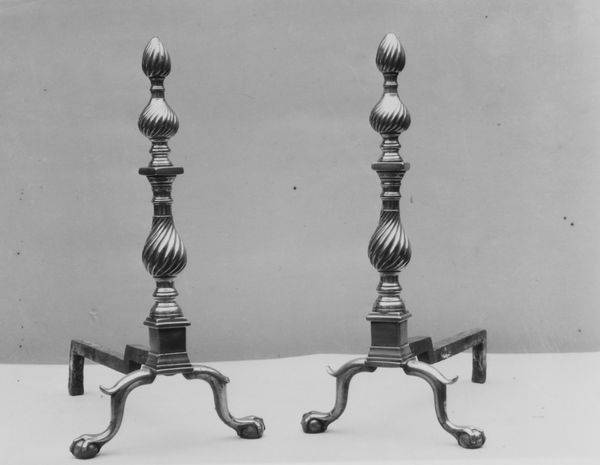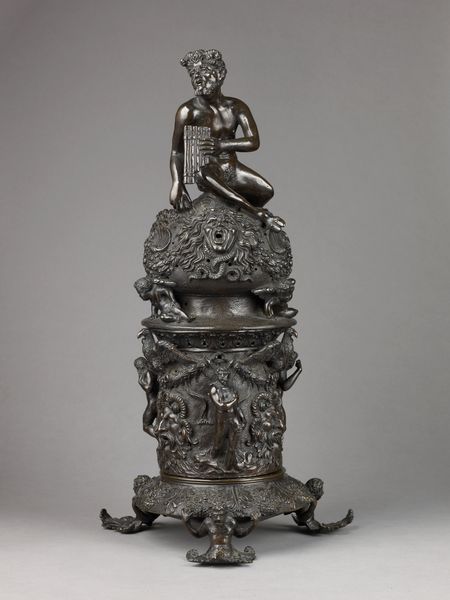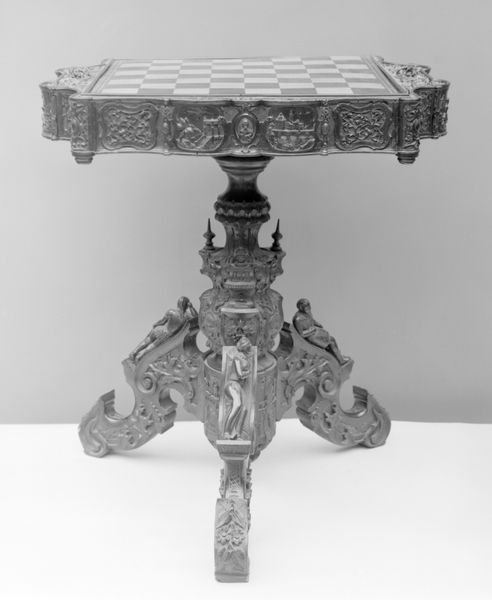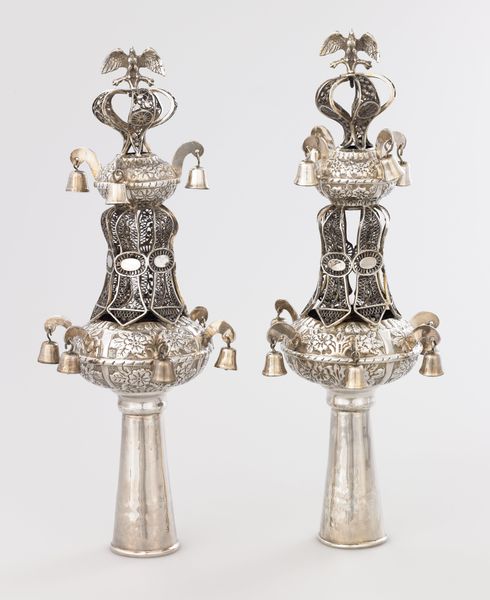
Altar candlestick (pair with 1975.1.1383) 1562 - 1568
0:00
0:00
metal, bronze, sculpture
#
metal
#
sculpture
#
bronze
#
figuration
#
11_renaissance
#
sculpture
#
decorative-art
#
italian-renaissance
Dimensions: H. 62 cm.
Copyright: Public Domain
These bronze altar candlesticks were made in Italy, most likely Venice, by Andrea di Alessandri around the mid-16th century. The lost-wax casting process used here was complex. Hot molten bronze was poured into a mold, which had been made from a wax original. The wax would melt away, leaving the negative form for the bronze to take. The material and method are important. Bronze, a mixture of copper and tin, was prized for its strength and workability. This allowed di Alessandri to create elaborate forms, like the figures and decorative motifs you can see here. Crafting objects like these was no mean feat, requiring skilled artisans. It was an expensive, labor-intensive process. Candlesticks like these were potent symbols of wealth and power, made to glorify God and impress the faithful.
Comments
No comments
Be the first to comment and join the conversation on the ultimate creative platform.
